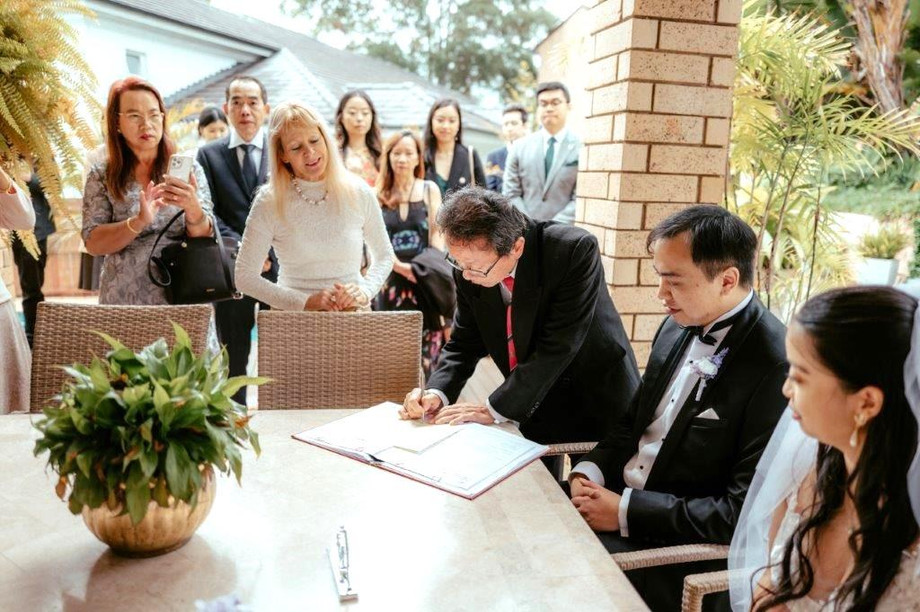**What is a Registry Wedding?**
A registry wedding is a simple and intimate legal marriage ceremony performed by a marriage celebrant in Australia. It can take place at any location or office. Registry weddings have gained popularity for their simplicity, cost-effectiveness, and legal recognition.
**Benefits of a Registry Wedding**
**Convenience and Simplicity of Registry Wedding**
Registry weddings offer a straightforward and hassle-free way to tie the knot. Couples can avoid the complexities and extensive planning associated with traditional weddings, such as booking venues, catering, and coordinating with vendors. With fewer formalities and requirements, registry weddings provide a convenient option for couples seeking a no-fuss approach to marriage.
**Wedding Cost-Effectiveness**
One of the primary advantages of registry weddings is their affordability. Compared to elaborate weddings with lavish ceremonies and receptions, registry weddings are significantly cheaper. Couples can save money on venue rentals, catering, decorations, and other expenses, allowing them to allocate their budget more efficiently or invest in other priorities, such as a honeymoon or future plans.
**Marriage Legal Recognition**
Registry weddings hold the same legal validity as traditional ceremonies conducted in religious institutions. By obtaining a marriage license and fulfilling the necessary legal requirements, couples can enjoy the same rights and benefits conferred by marriage lawfully. This aspect makes registry weddings a practical choice for couples who prioritize the legal aspect of marriage without the pomp and circumstance of a traditional wedding.
**Planning a Registry Wedding**
**Choosing the Date and Time**
One of the first steps in planning a registry wedding is selecting a suitable date and time for the ceremony. Since registry weddings are often less formal and scheduled based on availability of your celebrant, couples have the flexibility to choose a time that works best for them. It's essential to consider factors such as work schedules, availability of family and friends, and any legal requirements for obtaining a marriage license.
**Selecting the Venue**
Unlike traditional weddings that may take place in churches, banquet halls, or outdoor settings, registry weddings typically occur at the celebrant place or designated civil ceremony venues. Couples should research the locations available in their area and determine which venue aligns with their preferences and logistical needs. Factors such as proximity, accessibility, and the ambiance of the venue can influence the decision-making process.
**Understanding Legal Requirements**
Before proceeding with a registry wedding, couples must familiarize themselves with the legal requirements and procedures in their jurisdiction. This may include obtaining a marriage license, providing necessary documentation such as identification and proof of eligibility to marry, and adhering to any specific regulations or waiting periods imposed by local authorities. Understanding these requirements ensures a smooth and legally valid marriage ceremony.
Registry weddings typically follow a streamlined ceremony structure that focuses on legal formalities and essential rituals. The officiant or authorized individual begins by welcoming the couple and their guests, followed by the exchange of vows and rings. Depending on the couple's preferences, additional elements such as readings, music, or personal anecdotes may be incorporated to personalize the ceremony further. The ceremony concludes with the pronouncement of marriage and any closing remarks or blessings.

